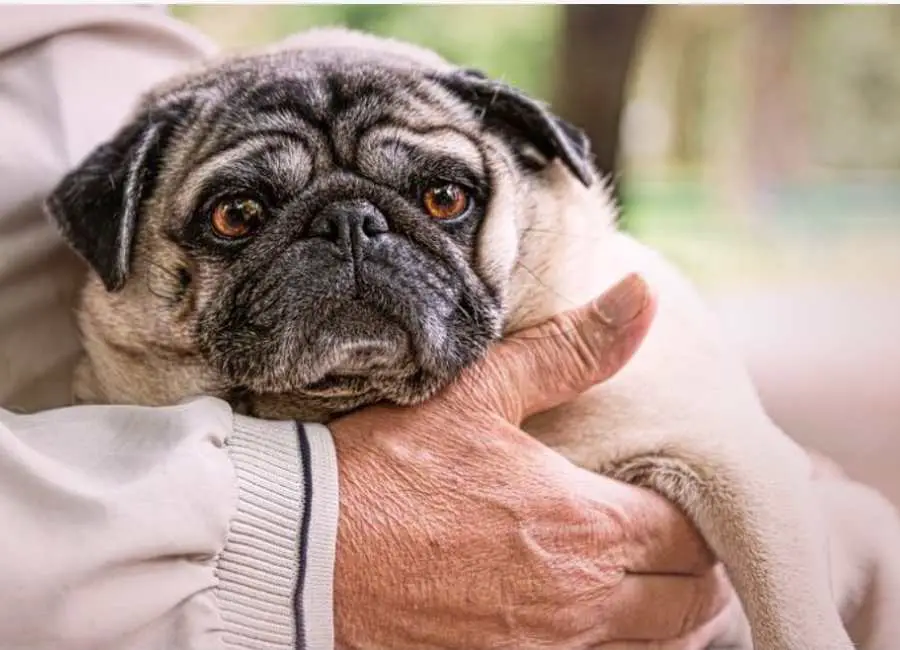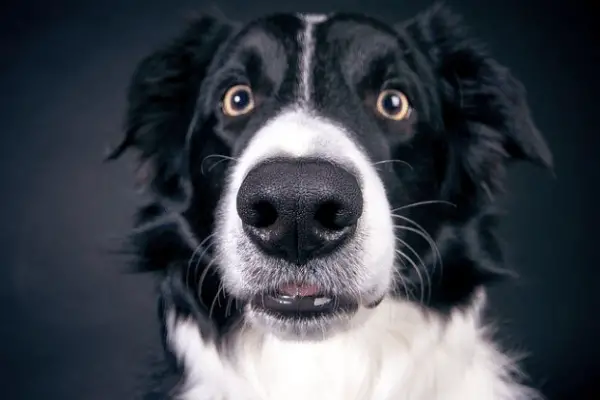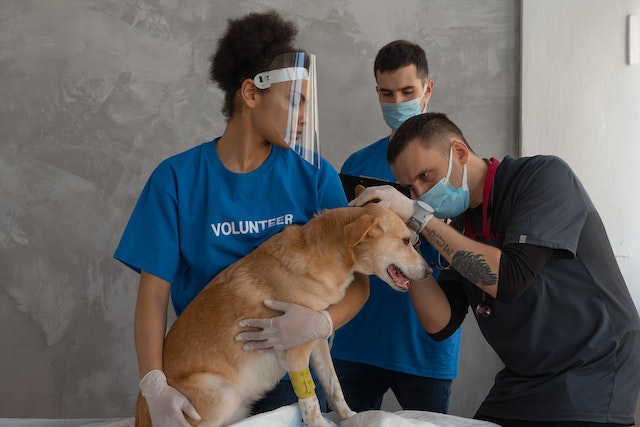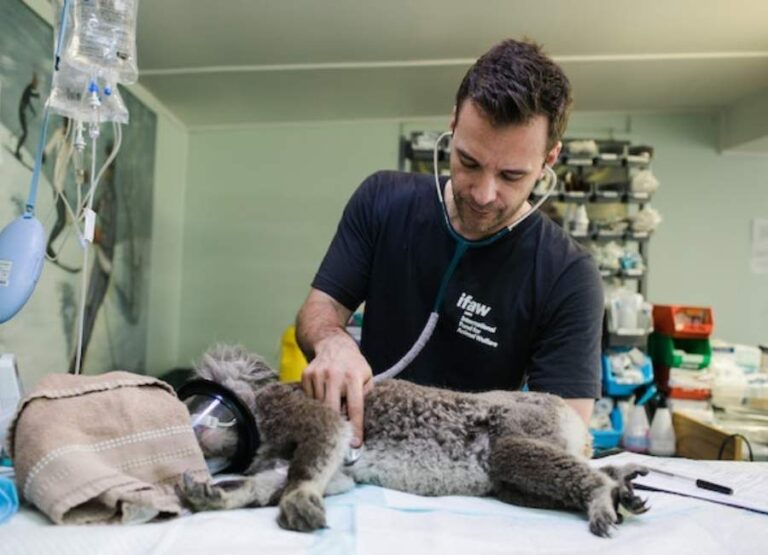10 Top Causes of Old Dog Shaking & More

Let’s dive in and get to the bottom of your old dog shaking!
As pet owners, it can be worrying to see our furry friends struggling with health issues.
If you have an older dog who has been shaking or trembling, it’s important to understand the potential causes and what you can do to help them.
In this short blog post, we’ll explore the common reasons why older dogs shake and share some actionable tips to keep your pup happy and healthy.
Causes of Old Dog Shaking
Here are some possible reasons your senior pup may be shaking:
1. Poisoning
Older dogs may be more vulnerable to medicine toxicity, chemical poisoning from household products, or plant poisoning.
Shaking, vomiting, diarrhea, and other signs of poisoning can occur in elderly dogs.
In the event that you believe your dog has been poisoned, seek immediate veterinarian attention.
The kind and extent of the poisoning will determine the course of treatment, which may involve supportive care as well as medication.
2. Arthritis
Inflammation and discomfort in the joints are symptoms of arthritis.
Senior dogs frequently experience it, and because of the pain and stiffness in the joints, it can induce shaking.
To ease pressure on their joints, give your dog a comfy bed or orthopedic mattress.
Maintain a healthy weight with nutrition and exercise, and for pain and inflammation relief, talk to your veterinarian about taking supplements or prescription medicine.
3. Anxiety and stress
Older dogs might become anxious for a number of reasons, such as schedule changes, loud noises, or being apart from their owner.
Due to their deteriorating health and age-related changes, older dogs may be more prone to anxiety.
You should deal with the underlying reason of your dog’s nervousness and give them a calming routine.
Make sure they are in a secure and comfortable setting, and think about using behavior modification strategies or veterinary-prescribed anxiety medication.
4. Pain
Injury, ailment, or underlying medical problems like cancer or rheumatoid arthritis can all result in pain.
In addition to other symptoms including tiredness, lack of appetite, and trouble moving, it can also result in shaking in senior dogs.
To find the source of your dog’s pain and the best course of action, which may entail medication, physical therapy, or other therapies, consult a veterinarian.
Learn more about signs of pain in dogs.
5. Cognitive dysfunction
Similar to Alzheimer’s disease in people, cognitive deterioration in older dogs can result in confusion, disorientation, and behavioral changes.
Shaking may be a sign of a cognitive disorder in older dogs.
Reduce any sources of confusion or disorientation and give your dog a secure, predictable environment.
A veterinarian’s prescription medication may also be useful for treating symptoms.
6. Vestibular disease
Older dogs who have vestibular illness, which affects the inner ear, may experience shaking and dizziness.
Additionally, this illness might also cause nausea, dizziness, and loss of balance in older dogs.
Consult a veterinarian to identify the disease’s underlying cause and the best course of therapy, which may entail medication or supportive care.
7. Generalized Tremor Syndrome (GTS)
Older dogs with GTS experience shaking or tremors. GTS is a neurological disorder.
This ailment, sometimes known as “old dog tremors,” typically has no other symptoms and has no negative effects on the dog’s quality of life.
Although GTS has no known treatment, it usually has no other symptoms and has little impact on the dog’s quality of life.
It could be suggested in some circumstances to use medicine to lessen the frequency or intensity of tremors.
8. Kidney or liver disease
Dogs who have kidney or liver disease may also exhibit additional symptoms like vomiting and lethargic behavior, including shaking.
If you think your dog may be experiencing either of these symptoms, you should take them to the vet right away because they can be quite serious.
The degree of kidney or liver illness will determine how it is treated.
To assist manage symptoms and stop the spread of the condition, this may entail dietary adjustments, medication, or other therapy.
Learn more about why your dog is sneezing excessively.
9. Hypoglycemia
Older dogs may be more susceptible to this illness, which can cause canines to shake from low blood sugar levels.
This can happen if the dog hasn’t eaten in a while or if they have a health issue like diabetes.
Your veterinarian can advise making nutritional changes, such as giving smaller, more often meals all throughout the day, if your dog has hypoglycemia.
In some circumstances, using medication to assist control blood sugar levels may be necessary.
Learn more about your dog coughing and not eating.
10. Thyroid problems
Dogs who are older are more likely to have an underactive thyroid gland, which can cause shaking.
Additional hypothyroidism signs and symptoms can include weight gain, fatigue, and dry skin.
To assist control thyroid hormone levels if your dog has hypothyroidism, medication may be administered.
Supplements and dietary adjustments may also be advised to support thyroid function and general health.
Learn more about dogs not eating but throwing up.
Preventing and managing shaking in of older dogs
Here are some common ways to prevent your older dog from shaking excessively:
- Keep your dog warm: Older dogs may have a harder time regulating their body temperature, so make sure they have access to a warm and comfortable sleeping area, especially during colder months.
- Provide regular exercise: Ensuring that your dog gets enough exercise can help them maintain their muscle and joint strength and reduce shaking.
- Proper nutrition: Providing your dog with a balanced and high-quality diet can help ensure they have enough nutrients to maintain their overall health.
- Monitor their environment: Avoid exposing your older dog to loud noises, such as thunderstorms or fireworks, as this can cause them to become anxious and shake excessively.
- Check for medical conditions: If your dog’s shaking is persistent or abnormal, it may be a sign of an underlying medical condition, so it’s best to bring them to a veterinarian for a check-up.
- Keep their ears clean: Ear infections can cause shaking, so make sure to keep your dog’s ears clean and free of debris.
- Provide anti-anxiety medication: If your dog’s shaking is due to anxiety, prescription medication can help calm them down and reduce shaking.
- Calming supplements: Natural supplements, such as chamomile or valerian root, can help reduce anxiety and nervousness in dogs.
- Provide massage therapy: Massage can help maintain muscle and joint flexibility and promote relaxation in older dogs, reducing the likelihood of excess shaking.
Learn more about the signs of a dog dying of old age.
Related questions
Why is my old dog shaking even when it’s not cold?
There are many reasons why an old dog might shake, and not all of them are related to the temperature.
Shaking can be a sign of pain, anxiety, or other medical issues, so it’s important to take your dog to the vet if the shaking persists.
Can old age cause a dog to start shaking?
Yes, old age can be a contributing factor to a dog starting to shake.
As dogs get older, they can experience muscle weakness and other physical changes that may cause them to shake.
What can I do to help my old dog stop shaking?
The best thing you can do to help your old dog stop shaking is to take them to the vet for a check-up.
If there is an underlying medical issue causing the shaking, your vet can recommend a course of treatment.
Additionally, you can provide your dog with a warm and safe environment, plenty of rest, and a balanced diet to help support their overall health and well-being.
Can anxiety or stress cause an old dog to start shaking?
Yes, anxiety and stress can be a common cause of shaking in dogs, regardless of their age.
If you suspect that your old dog is experiencing anxiety or stress, it’s important to identify the root cause and find ways to address it.
This might involve making changes to their environment, adjusting their routine, or using behavioral training techniques.
Is it normal for an old dog to shake while sleeping?
It’s not uncommon for dogs to shake or twitch while they sleep, including older dogs.
This is likely due to the same muscle spasms that occur during human REM sleep.
However, if the shaking appears to be excessive or is accompanied by other symptoms, it’s important to have your dog checked out by a vet.
Should I be concerned if my old dog only shakes occasionally?
If your old dog only shakes occasionally and seems otherwise healthy, there may not be any cause for concern.
However, if the shaking becomes more frequent or is accompanied by other symptoms such as lethargy or loss of appetite, it’s a good idea to have your dog checked out by a vet to rule out any underlying medical issues.
Learn more about comforting a dying dog.
Conclusion
In conclusion, if you notice your old dog shaking, don’t panic! It’s a common issue that can be caused by a variety of factors, from anxiety to arthritis.
By taking your furry friend to the vet and making some simple lifestyle changes, you can help them feel more comfortable and relaxed.
Remember to always show your dog love and patience, and they’ll be wagging their tail in no time!


![Dog Paw Infections [Causes, Signs & More] Dog Paw Infections](https://petcreeks.com/wp-content/uploads/2023/09/natalie-parham-1dQuP79kLfg-unsplash-1.jpg)



